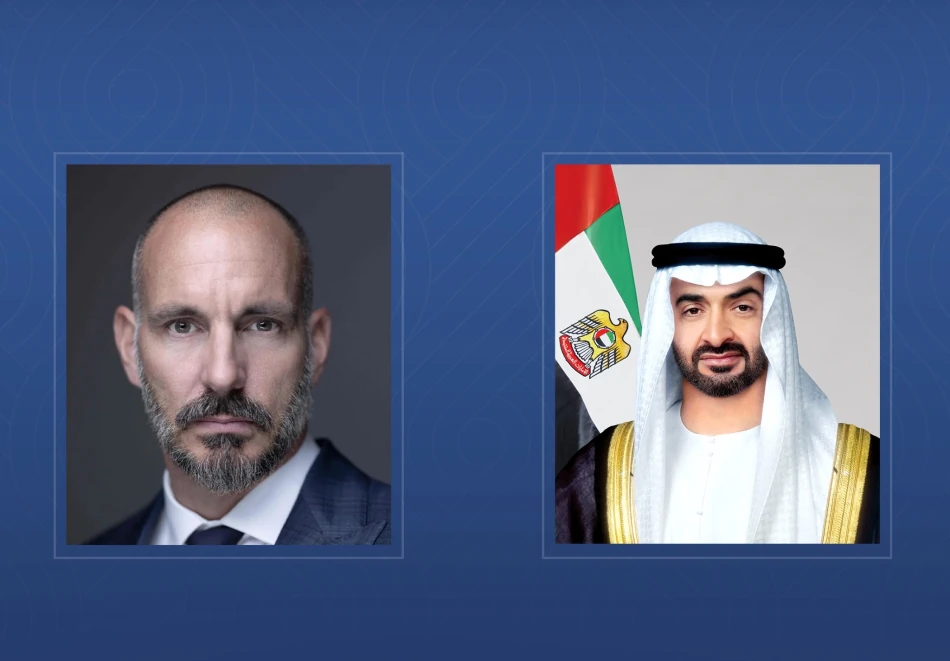
State Leader Welcomes Ismaili Community Leader, Fostering Interfaith Dialogue and Unity
UAE Reinforces Global Religious Diplomacy with Historic Ismaili Leader Meeting
UAE President Sheikh Mohamed bin Zayed Al Nahyan hosted Aga Khan IV, the spiritual leader of the world's 15 million Ismaili Muslims, in a high-profile diplomatic meeting that underscores the Emirates' strategic positioning as a global hub for interfaith dialogue and cultural tolerance. The encounter at Al Shati Palace signals the UAE's continued investment in soft power diplomacy through religious and cultural outreach.
Strategic Dialogue on Global Coexistence
The meeting focused on strengthening shared humanitarian values and fostering civilizational dialogue between diverse cultures and peoples worldwide. This represents more than ceremonial diplomacy—it reflects the UAE's calculated approach to building bridges across religious and cultural divides at a time when global tensions around identity and faith continue to rise.
The Aga Khan praised the UAE's "exemplary civilizational model" in embracing diversity and promoting coexistence within its society. This recognition carries significant weight, given the Aga Khan's extensive global network and his foundation's work in over 30 countries across education, healthcare, and economic development.
The UAE's Tolerance Model Goes Global
The Emirates has systematically built its reputation as a beacon of tolerance in the Middle East, establishing the Ministry of Tolerance and Coexistence in 2016 and hosting the Pope's historic visit in 2019. This latest meeting with the Aga Khan reinforces the country's brand as a safe haven for diverse religious communities—a strategic asset that attracts international business, tourism, and diplomatic influence.
The Aga Khan specifically commended Sheikh Mohamed's humanitarian initiatives supporting peace and development globally, highlighting the UAE leader's approach to improving quality of life for communities worldwide. This mutual recognition creates a powerful alliance between state diplomacy and religious leadership that extends far beyond the UAE's borders.
High-Level Participation Signals Priority
The meeting's attendee list reveals the importance the UAE places on this relationship. Present were Sheikh Hamdan bin Mohammed bin Zayed Al Nahyan, Deputy President of the Presidential Court for Special Affairs, along with senior advisors and ministers including the Minister of State for International Cooperation and the President of the Presidential Office for Strategic Affairs.
This level of representation suggests the discussions likely covered substantial cooperation agreements, potentially spanning the Aga Khan Development Network's extensive portfolio in education, microfinance, and rural development—areas where the UAE has increasingly sought to project influence through its own aid and development initiatives.
Broader Implications for Regional Leadership
The timing of this meeting is particularly significant as Middle Eastern nations compete to position themselves as moderate voices in an increasingly polarized global landscape. While Saudi Arabia pursues Vision 2030 and Qatar leverages its World Cup platform, the UAE continues to differentiate itself through consistent messaging on tolerance and practical policies that welcome diverse communities.
For the Aga Khan, this partnership provides access to the UAE's growing influence in global affairs and its position as a bridge between East and West. For the Emirates, the relationship offers credibility and reach into communities across Asia, Africa, and beyond—markets where the UAE increasingly seeks economic and diplomatic influence.
Most Viewed News

 Sara Khaled
Sara Khaled






